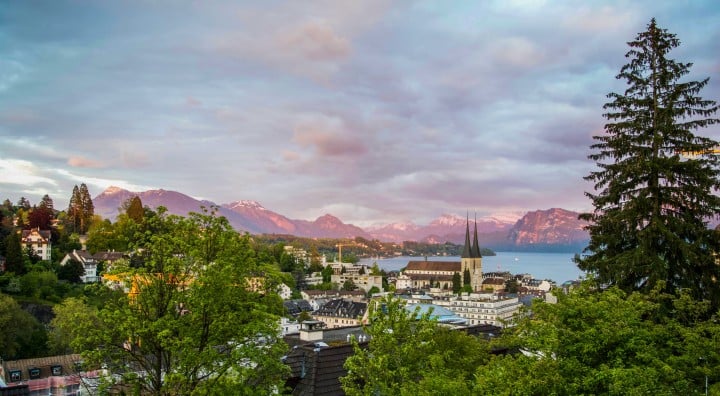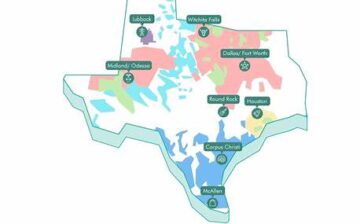
If you’re considering a move from the city to the countryside, you’re far from alone. Since the pandemic started, a record number of Americans have left urban areas. Masses of former city-dwellers have taken up residence in Montana, rural Maine, and upstate New York. Two-thirds of large urban counties experienced population declines, according to government statistics. This represents the first decline in 50 years.
Remote work, high property costs, safety, and the desire for more space were the biggest motivations for the moves out of major cities. New York City, Chicago, and Philadelphia saw population losses, while places like Meridian, ID, Cumming, GA, and Cypress, TX gained in population.
Moving to the countryside can bring many rewards, but it requires adjustment. This post will describe the benefits of moving from the big city to the wide-open country and some things you’ll need to know before making the move.
Benefits of Moving to the Countryside
Here are some things many people appreciate about country living.
Lower Cost of Living
If your job allows it, living in the country while teleworking enables your salary to go further. You can save more and enjoy a higher standard of living. Housing, food, and taxes are generally much higher in cities than in the country. The lower costs in rural and suburban areas also appeal to retirees on fixed incomes.
Less Traffic
Country living can offer welcome relief if you’re tired of getting stuck in rush-hour traffic each day. Driving on packed highways daily adds to stress and takes up a chunk of your day; commuters in the most congested cities spend an average of 99 hours per year waiting in traffic.
Better Quality of Life
Large cities aren’t known for having the best living environments and air quality. If you want to walk in the park or along the lake and not have to breathe in smog or car exhaust, country living can provide the change of scenery you’re longing for. Many find the fresh air and natural scenery to be uplifting.
Less Crime
Although crime is everywhere, it’s more widespread in many big cities. The pandemic and current economy have contributed to increases in crime and homelessness. Many families, especially seniors and those with young children, are looking for a safer place to live.
More Space
After being cooped up in tiny urban homes for years or decades, many people want to broaden their horizons and enjoy more living space. They want to look out their window and see green spaces instead of cars and high-rises.
Returning to a Bygone Era
In many ways, country living offers a return to life in years past. Some city-dwellers who moved from the country years ago are missing the small towns of their youth. They also want their kids to have the same pleasures they had growing up, like fishing in lakes and rivers, exploring nature, and playing sports instead of staring at the four walls or playing video games.
Stronger Community
In a metropolis like New York City, you can be surrounded by people but still be lonely. People come and go, the faces change every few years, and it can be hard to have lasting relationships. In the countryside, your neighbors may be far away, but people are more likely to support and help each other. Helping your neighbors and accepting their help can lead to a closer community than you may have in the big city.
Things to Know When Moving to the Countryside
If all of this sounds good to you, then you might join the stream of urbanites who are choosing to plant their roots in the great outdoors. But before you head for the hinterland, here are a few things you’ll need to know and be prepared for.
Get Used to Driving
If you’ve been living in Manhattan, NY, Washington, D.C., or another city with ample public transportation, you may have gone a long time with little or no driving. You might not even own a car. But you’ll need one in the countryside. The public bus routes might not go out that far, or if they do, buses will come infrequently. Meanwhile, taxis and Uber will cost a bundle.
If you’ve become accustomed to having grocery stores, restaurants, and drug stores just a few steps from your front door, living in the countryside will be quite a change. Even going to the store may involve a 15-minute drive into town. You’ll need to get a vehicle and keep it gassed up, registered, and maintained.
You’ll Be Largely on Your Own
At night in the countryside, get used to hearing coyotes, owls, and crickets instead of cars, subways, and people talking. You may even see deer and other wildlife just outside your door.
This also means, however, that you’re on your own, come rain or shine. If you choose to settle in Montana, Idaho, or another place with winter weather, you’ll need to get used to driving in the snow and stocking up on food and supplies in case you’re snowed in. Even Texas occasionally experiences severe winter weather, and you may want a generator and portable stove in case the power is out for days.
Become Friends with Your Neighbors
As we mentioned, people support and depend on each other more in the countryside. This means you’ll want to keep good relationships with the people living nearby. They can tell you where to buy food and supplies, how to prepare for the different seasons, and what will keep the raccoons away from your property. When you need electrical or plumbing work done at your house, or the snow cleared from your street, the people providing these services are likely to be your neighbors. To cultivate good relationships with the locals, attend community events, volunteer in local organizations, and be cordial.
Get Used to Things Taking Longer
You may have become accustomed to restaurant deliveries and always-on cell service in the city. In the countryside, these amenities are nonexistent. Trash pickup, mail delivery, and service calls may take longer than what you’ve been used to, depending on where you live.
You Will Have to Be Self-Reliant
Following the previous point, you will have to take care of many things yourself that you didn’t have to back in the city. If a tree falls across your driveway or street, you will have to use your chainsaw to remove it or ask a neighbor to help you out. Clearing weeds and brush, splitting wood, tending a garden … these activities come with countryside living. You’ll be doing more skilled and unskilled manual labor than you may have up to now in the city.
If you’re planning to move from a city to the countryside, this post has given a taste of what your experience may be like. Many people have made the transition and love it. And if you want to be assured of an easy and stress-free move, give All Around Moving a call today.
We hope you found this post, Tips For Moving from a City to the Country, useful. Be sure to check out our post Transitioning from City Life to Country Life for more great information.
Have Experience in the Moving Industry? Want an Additional Income Stream? Work With All Around Moving!
Our unique Work With Us program gives the opportunity to experienced moving consultants to run their own Moving Consultant business from anywhere in the United States. Click here to learn more.





